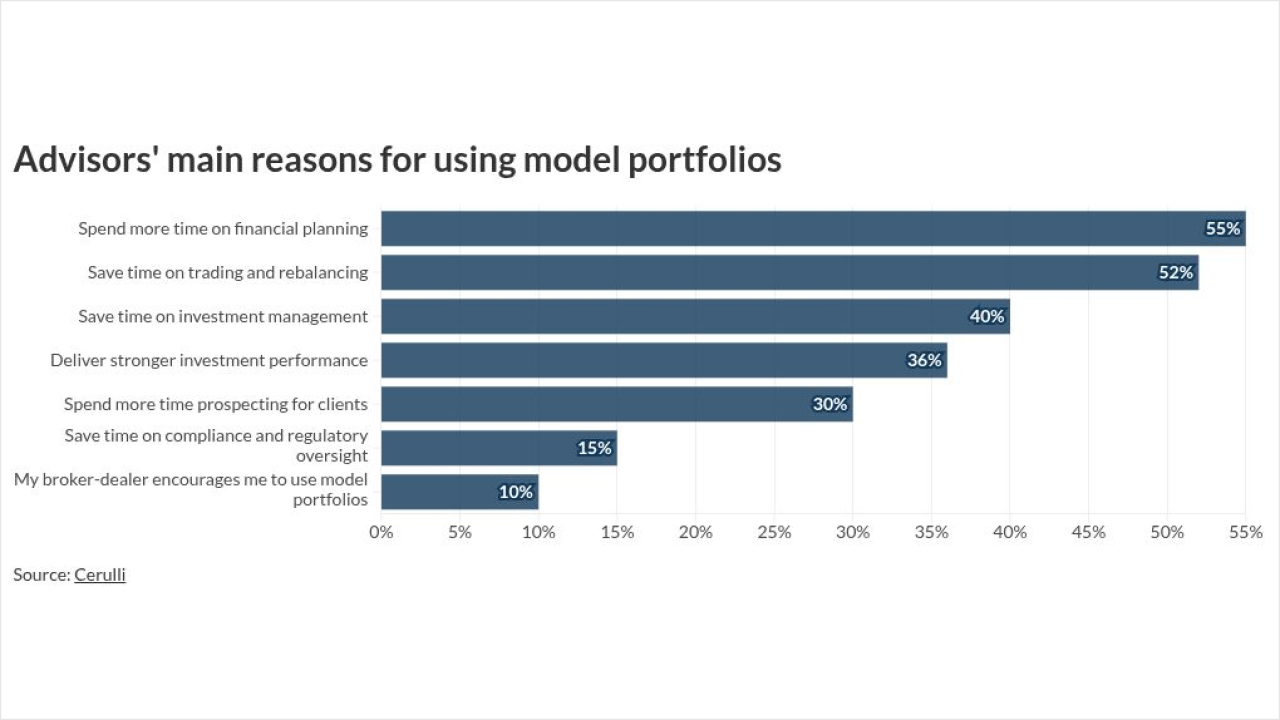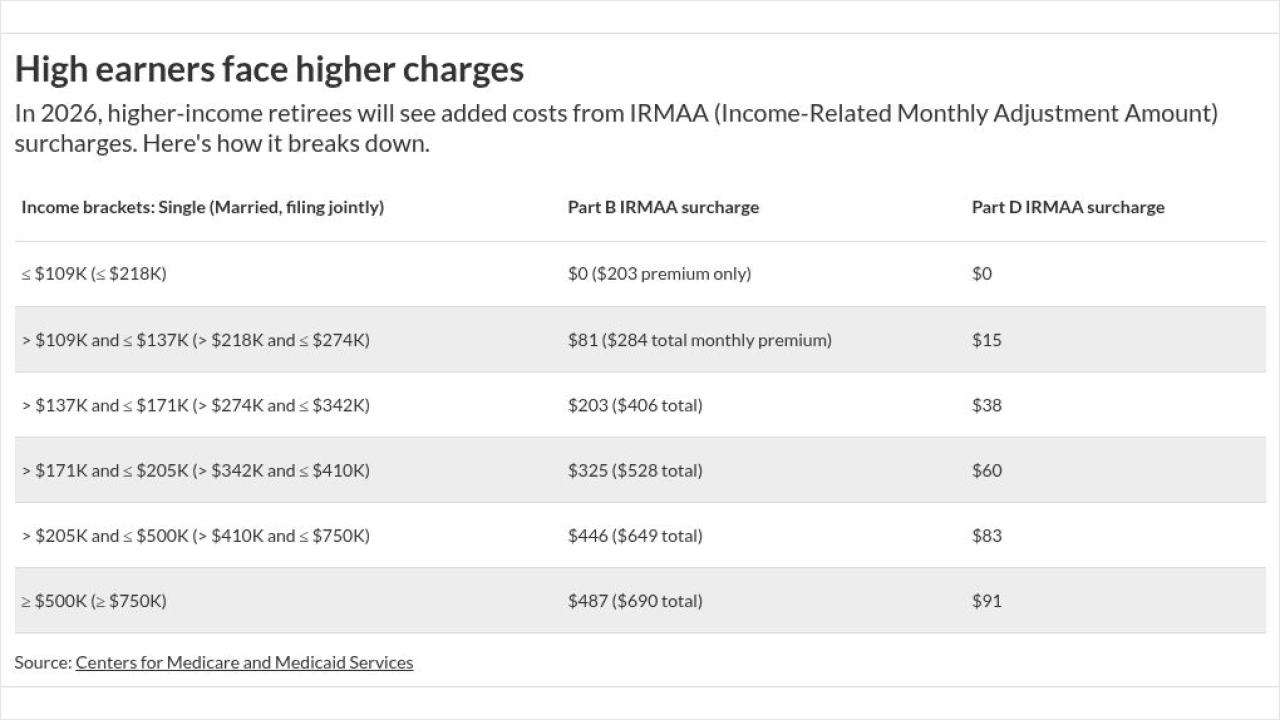Sarbanes what? The landmark legislation passed last year in response to rampant accounting misdeeds has disappeared from the headlines but continues to be a thorn in the side of fund executives and accounting personnel.
The Sarbanes-Oxley Act has taken a back seat to the likes of Rep. Richard Baker's (R-La.) Mutual Fund Integrity and Fee Transparency Act of 2003 and, more recently, the potential makings of the largest scandal ever to plague the fund industry. Throw in the biggest settlement in the history of Wall Street, the $1.4 billion top 10 brokerages paid for their misdeeds, along with the Patriot Act, and Sarbanes-Oxley is seemingly old laundry.
However, while not as sexy a story as current corporate malfeasance, ramifications from the act have had a significant impact on fund firms. One year out, new tasks and increased workloads continue to illustrate the difficulties and disturbances in day-to-day activities.
Joseph Carrier, vice president and treasurer of T. Rowe Price Funds and chair of the Investment Company Institute's accounting/treasuries committee, said that the pendulum swung to one extreme when the act was passed and that there are several difficult demands placed on executives and firms under the rules.
"As an industry, we're not trying to lash back, because we understand the context in which [the rule] came. We're just saying it wasn't necessarily designed for us, doesn't necessarily fit an investment company complex where you have a large number of funds. We have always had a control structure in place due to the 1940 Act."
Carrier said he has "always been an advocate of some really good disclosure - small amounts of very good disclosure on some key points." But, he said, the rules are not really changing the quality of what is being reported, just the way in which the information is being gathered and documented. He said Sarbanes-Oxley has broadly expanded much of what he and his firm already were doing in several areas. "We are spending more time documenting controls and procedures that were previously in place," he said.
Are There Enough Hours?'
With the individual accountability provision, the onus has fallen directly on the executives of the company to personally ensure that everything is on the up and up. This requires an inordinately huge amount of reviewing, Carrier said. In the past, Carrier said, he was confident relying on competent people and sound procedures. Now, he must personally review and sign off on all financial and accounting matters.
Carrier said the time he spends on compliance with the rule tends to come out of his own personal time because he still has all the same duties and responsibilities he had before the act was passed. Sometimes it becomes a question of asking himself, "Are there enough hours in the day to do everything that is required of me?"
Essentially, the new law requires creating "a separate organization to collect all of the organic data," he said. "For us, it is the equivalent of four man-years of people to maintain and create the documentation. Then on top of that, existing staff has had to deal with all of the incremental demands on their time." For example, Carrier has to sit in on all of the meetings and personally review shareholder reports for all the funds.
Jeff Keil, vice president of Lipper's Global Fiduciary Review, said that although there are significant time demands placed on executives and an additional onus on the boards of fund companies, the act has been positive so far. "A lot of this was foreseen and the fund industry voiced its concerns. But, regulators felt these checks and balances were necessary," Keil said.
"I think we're seeing slow implementation," he continued. "It hasn't totally settled in yet. On the surface, it's been very positive and in another 12 months or so, it will be fully entrenched."
What You See is What You Get
The House Financial Services Committee is holding a hearing on Wednesday to review its progress. A spokeswoman for the committee said that Chairman Michael Oxley (R-Ohio) has said there is not likely to be a technical correction relating to the rules in the near term, but declined to further comment about the specific topics to be addressed at the hearing.
Securities and Exchange Commission Chairman William Donaldson and Public Company Accounting Oversight Board (PCAOB) Chairman William McDonough are both slated to testify. The PCAOB was created as a part of the act, as a private-sector, non-governmental body, and focuses on registration, inspection, enforcement and standards-setting.
McDonough, former president of the Federal Reserve Bank of New York, making his maiden speech as chairman of the PCAOB last Tuesday, told the New York State Society of Certified Public Accountants that those that do not comply with the rule will have hell to pay. "If you break the rules, if you ignore the spirit of the law even while meeting the letter, woe be unto you. There will be consequences, and they will be grave," he said.
Donaldson's and McDonough's offices both declined to provide specifics of their upcoming testimony. However, Donaldson spoke last week before the Senate. "I have become aware that some in the business sector feel that they are under siege from new regulations and the threat of additional litigation," Donaldson told the Senate Committee on Banking, Housing and Urban Affairs. "As I have mentioned before, good, honest companies should fear neither Sarbanes-Oxley nor our enforcement efforts.
"While it may be a bit too early to judge the impact of all of the various provisions of the act, the commission will monitor carefully the implementation and effects of the new rules and requirements. We will take actions, as appropriate, to ensure that the objectives of the act are achieved," he said.
Copyright 2003 Thomson Media Inc. All Rights Reserved.
http://www.thomsonmedia.com http://www.mmexecutive.com





